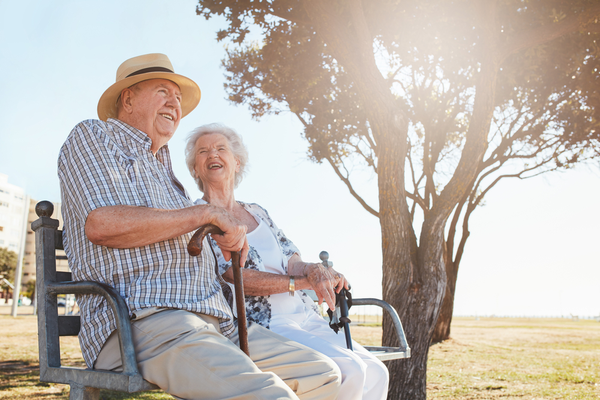
Even though it’s already February, it often feels like the warm weather is sticking around longer.
According to the Victorian Government’s Better Health Channel , older individuals are more prone to heat stress than other age groups because their bodies find it more difficult to adjust to a sudden or prolonged temperature change. They are also more likely to be taking medication that might affect their body’s ability to regulate temperature. People on medications for mental illness are also a high-risk group.
During these summer months, it’s important to check in with your residents and seek urgent medical assistance if a person shows signs of heatstroke.
Symptoms
Heat stroke occurs when the body’s core temperature rises above 40.5 °C. Internal systems begin shutting down, damaging the central nervous system and vital organs. This requires urgent medical attention to quickly reduce body temperature.
Heat exhaustion occurs when excessive sweating reduces a patient’s blood volume and can develop into heat stroke. Warning signs include increased heart rate, cramps, dizziness, headache, nausea, vomiting or fainting. Other common illnesses and symptoms of excessive heat include heat rash around the neck, chest, elbows or groin and heat cramps in the abdomen, arms or legs.
Treatment
To treat heat exhaustion or heatstroke, apply first aid if you are trained to do so and call Triple Zero (000) immediately.
There are other ways of helping someone with heat stroke to bring their body temperature down
- Move the patient to a cool area and lay them down
- Remove outer clothing
- Wet the skin with cool water or damp cloths
Prevention
As with many illnesses, there are always actions you can take to prevent heat-stroke and other heat-related illness from occurring. Here are some tips:
Stay hydrated
- Whatever a client’s level of activity, the body needs more fluids during hot weather, even if they don’t feel thirsty
- Ensure drinks are within reach and frequently refill water jugs
- Offer help with drinking for those clients that require assistance
- Serve hydrating snacks, such as watermelon and cucumber
- Avoid serving alcohol, high sugar drinks and extremely cold liquids (as these may cause stomach cramps)
Avoid the heat
Stay out of the sun as much as you can and if you have to go outside, remember to be SunSmart.
Limit your activities
On really hot days, try to restrict physical activities to the cooler parts of the day and avoid any unnecessary physical exertion.
Cool the room
Where possible, air conditioning and/or fans should be set up where residents spend their time
Small meals
When the weather is hot, clients may not feel hungry but it’s important to keep up energy levels. Try serving smaller meals more often and include cold, lighter foods like salads and fruit platters.
Dress for heat
Light coloured, loose-fitting cotton clothing will help keep the body cool. Cool summer nightwear and light bed linen is also important for hot nights.
Further information
Seek urgent medical assistance for heatstroke or heat exhaustion by calling triple zero (000). For other types of heat-related illnesses, you can speak with a medical practitioner or contact the NURSE-ON-CALL hotline on 1300 606 024 for further advice.
